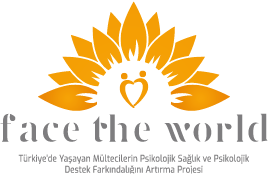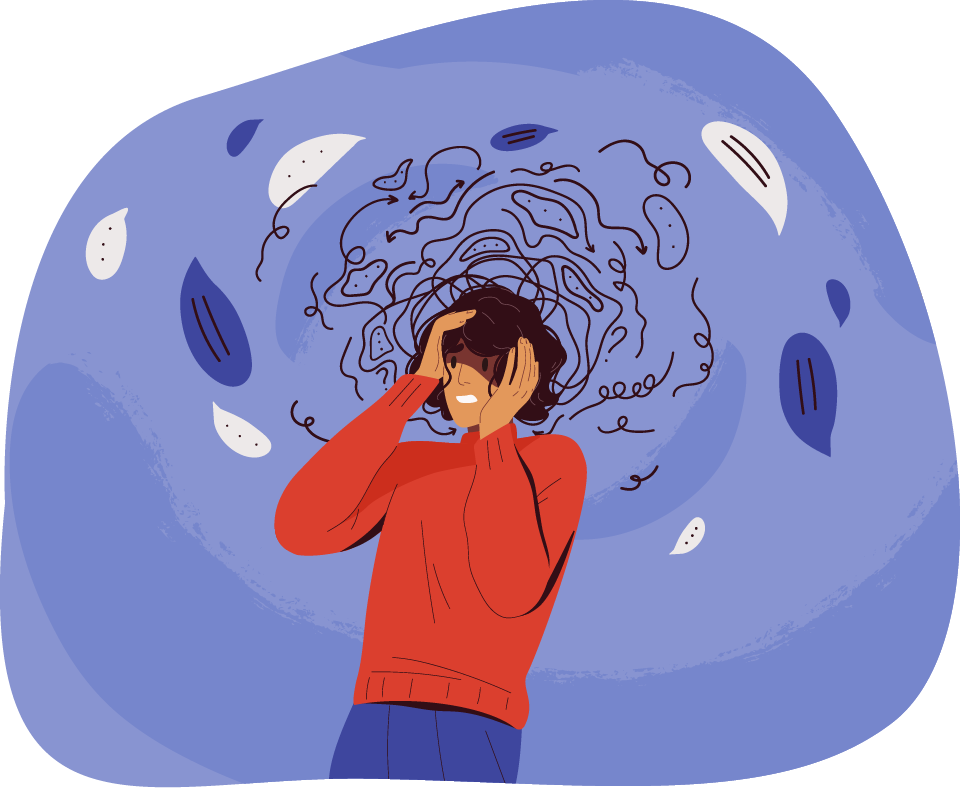Do you think anxiety is a very bad thing? Can we live an anxiety free life? Do you think it is possible? In other words, is it possible to not feel anxious at all?
No.
It may be hard to believe, but anxiety is not as bad as we think. Most of the time, anxiety can be helpful.
As a matter of fact, everyone experiences intense feelings of anxiety from time to time. These feelings might also be accompanied by agitation, irritability, hastiness and nervous temperament. Worrying about something can also mean that we care about that thing. We do not worry about people who we do not know or something we do not care about. We can get bad grades in an exam, which we did not care about, for not studying at all. If we do not care about paying the electricity bill, if we do not pay attention to the payment date, we miss the due date. In that case, not only will our power be cut off, but also we will have to pay an additional fee. Therefore, anxiety is necessary for us to deal with the difficulties of our life and to produce solutions to such situations. Feeling a certain amount of anxiety can be helpful.
The problem is about having excessive anxiety. In a state of excessive anxiety, our body may experience the following symptoms:
- Heart palpitations
- Excessive sweating (Especially on the palms, back, etc.)
- Muscle tension and muscle strain (Sometimes fists and teeth are clenched unintentionally)
- Stomach aches, nausea, feeling queasy
- Increased urinary frequency
- Shortness of breath
- Tremors or convulsions
- Headaches
- Excessive fatigue
- Trouble sleeping
This emotion also affects our thoughts and behaviours. In a state of excessive anxiety, we may experience the following:
- Being unable to stop certain thoughts
- A feeling of being out of control, panic
- Sudden anger outbursts
- Running low on patience
- Indisposition, lack of interest (We may begin to no longer enjoy doing things or hobbies we used to enjoy)
- Overthinking about something (something that seems insignificant at times)
- The desire to get away from the cause of stress as soon as possible
- Abuse of alcohol or other addictive substances
- Appetite related problems; overeating or eating very little
- Social withdrawal (We may distance ourselves from our family and social circle, we may not wish to go out or go to work, or we may make efforts to avoid certain places that increase our anxiety)
Experiencing such symptoms very strongly and for a long time can interfere with our daily functioning and adversely affect our mental health.
Excessive anxiety can make our life difficult and end up restricting it. An individual can find himself/herself in a state of uncontrollable and recurring agitation and restlessness all of a sudden, without knowing the cause of it. When this situation is disregarded, the individual can experience anger outbursts, fear of dying, fear of going crazy, heart palpitations and panic.
As we do not wish to experience such situations again, we try to avoid places and people that we believe to be capable of causing the same situations.
The Anxiety Mechanism
Anxiety is a product of the body’s automatic and natural functioning system.
Anxiety has a protective function for an individual in his/her daily life. It enables us to become aware of the challenging life events and to take precautions against such events accordingly. The mechanism that comes into play when experiencing anxiety is actually our natural response to a stimulus (anything that one is exposed to in an environment; taste, smell, sound, light, shape, visual, motion, etc.) that causes fear. In the face of a threat, as a common response, all living beings prepare their body to react. Indeed, the anxiety mechanism aims to enable us to take precautions and be ready in the face of a potential threat in order to survive or to be able to avoid being harmed by fighting against difficulties. On the other hand, when faced with certain threats, the correct course of action is to look at the threatening object and wait without moving. All these automatic reactions are called the “fight, flight or freeze” response. These responses are of vital importance.
Why Is Excessive Anxiety a Problem?
Sometimes, upon experiencing the feelings of fatigue and weakness or after a traumatic experience, we might start to react, suddenly and severely, to things that we do not normally perceive as threats and that we were not afraid of before.
For instance; a person, who has become a victim of a purse snatching incident while walking on the road, can develop a feeling of uneasiness when walking on the road after the incident and start to react with fear when s/he has to leave the house or when s/he encounters strangers. This experience of the said person can be defined as the automatic activation of the anxiety mechanism in an excessive manner.
When the anxiety mechanism starts to work excessively, it affects our life adversely. This situation causes us to face problems in many areas, makes our life difficult and ends up restricting it. Anxiety is a natural emotion. The actual problem here lies with the excessive anxiety. Excessive anxiety can have a very negative impact on our daily life and cause us to start having difficulty doing ordinary activities that we were able to do in the past.
It is, therefore, necessary to learn how to cope with excessive anxiety and regain our composure.
If untreated, excessive anxiety may evolve into a mental health problem, and in the long run, it can lead to:
- Cardiovascular diseases
- Stroke
- Memory problems
- Getting sick frequently
- Stomach ulcer and other similar digestive ailments
- Various intestinal problems
- Persistent muscle aches
Our goal should not be to neutralize or eliminate anxiety, but to learn how to cope with it.
Anxiety is a natural emotion. It is not possible to neutralize it.
If you want to benefit from our mental health services, you can apply to the nearest ASAM office for further information. Interviews are held free of charge and in accordance with the principle of confidentiality.


